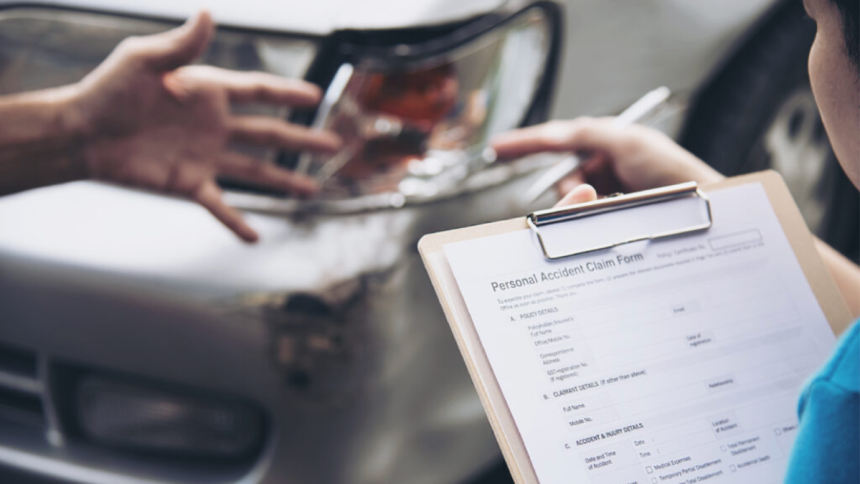Have you ever wondered why some car accident claims drag on for months or end up being denied altogether? Often, it’s not just the insurance company that slows things down; it’s the mistakes people make along the way.
Understanding the car accident claim process can make the difference between a smooth experience and a frustrating one. Many drivers, especially after the stress of a crash, overlook key steps or give information that works against them.
In this article, we’ll break down the most common mistakes people make when filing a claim and how you can avoid them. From missing deadlines to saying too much to an insurance adjuster, you’ll learn what to watch out for so you can protect your rights and get fair compensation.
Frequent Errors to Avoid When Filing a Car Accident Claim
1. Waiting Too Long to Report the Accident
Time matters in a car accident claim. Most states have a statute of limitations, which is the deadline for filing a lawsuit if your claim is denied. For example, in California, you have two years from the date of the accident to file a personal injury claim. If you wait too long, your claim may be barred.
Even before lawsuits, insurance policies usually require you to report an accident within a few days. Delays can make it harder to prove what happened. Always report your accident as soon as possible.
2. Not Calling the Police
Some drivers try to handle accidents privately, but skipping a police report is a mistake. A police report creates an official record, which can help prove fault and damages. Without it, it becomes your word against the other driver’s.
Even in states that allow small accidents to be settled without a report, calling the police can prevent disputes later. Most insurance companies expect a police report when reviewing claims.
3. Admitting Fault at the Scene
It’s natural to say “I’m sorry” after a crash, but even small comments can be taken as an admission of fault. Stick to the facts when speaking to the police, the other driver, or witnesses.
Fault is determined by evidence, not quick statements made under stress. Leave it to the insurance adjusters and, if needed, the courts to assign responsibility.
4. Not Getting Medical Attention
Many people skip seeing a doctor if they don’t feel hurt right away. This can hurt your claim. Some injuries, like whiplash or concussions, appear hours or days later.
Insurance companies may argue that if you didn’t seek medical care right away, your injuries are not related to the accident. Always get checked by a doctor and keep copies of all medical records.
5. Giving Too Much Information to the Insurance Adjuster
Insurance adjusters may seem friendly, but their job is to save the company money. If you give long statements or agree to recorded interviews without preparation, you may harm your claim.
Keep your answers brief and stick to the facts. Do not guess or speculate. If you are unsure about a detail, say so.
6. Posting on Social Media
Posting pictures or updates about your accident or injuries can weaken your claim. Even casual posts can be used against you. For example, if you claim back pain but post a photo of you lifting groceries, the insurer may argue you’re exaggerating.
It’s safer to stay off social media until your claim is resolved.
7. Accepting the First Settlement Offer
Many people accept the first settlement because they want the process to be over quickly. But early offers are often lower than what you deserve. Once you accept, you usually can’t ask for more, even if your medical bills rise later.
Compare the offer with your actual costs. Consider future medical care, lost income, and pain and suffering.
8. Missing Deadlines for Documents
Insurance companies often have strict timelines for submitting forms, repair estimates, and medical bills. Missing deadlines can lead to delays or the denial of your claim. Keep a folder with all accident-related documents and track due dates carefully.
9. Not Keeping Records
You need proof to support your claim. Without records, you may lose compensation. Always keep:
- Police reports
- Medical bills and records
- Photos of the accident and injuries
- Repair estimates
- Communication with your insurer
Good records make it harder for the insurance company to dispute your claim.
Final Thoughts
Filing a car accident claim can be stressful, but knowing what mistakes to avoid can save time and protect your rights. Reporting promptly, keeping records, seeking medical care, and being careful with what you say are all simple steps that make a big difference.
Quick Recap of Common Mistakes to Avoid
- Waiting too long to report the accident
- Skipping the police report
- Admitting fault at the scene
- Ignoring medical care
- Oversharing with insurance adjusters
- Posting about the accident on social media
- Accepting the first settlement offer
- Missing deadlines for paperwork
- Failing to keep organized records
Lynn Martelli is an editor at Readability. She received her MFA in Creative Writing from Antioch University and has worked as an editor for over 10 years. Lynn has edited a wide variety of books, including fiction, non-fiction, memoirs, and more. In her free time, Lynn enjoys reading, writing, and spending time with her family and friends.















